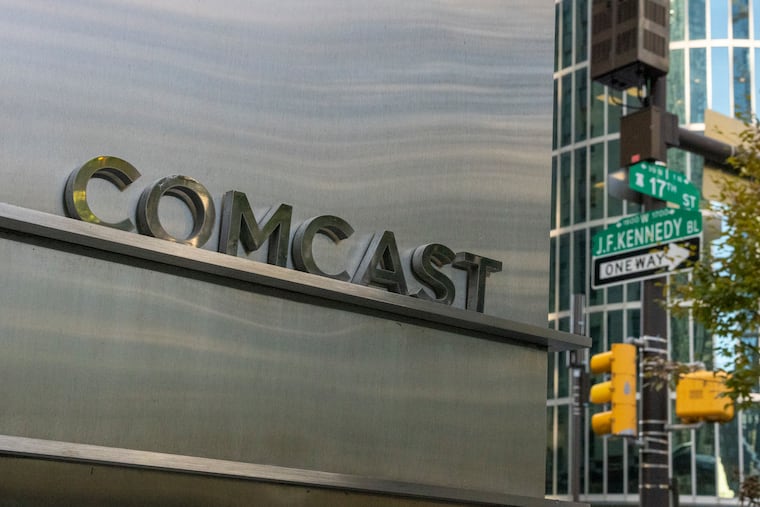Comcast in a better spot than other cable companies to compete with mobile carriers’ fixed wireless products
That's according to a new S&P report. Verizon and T-Mobile have said they expect to have up to 13 million fixed wireless subscribers by the end of next year, posing a threat to some cable companies.

With major mobile carriers competing in the internet market, Comcast has a leg up over other cable providers, according to a new S&P Global report.
While the cable industry at large has lost customers to wireless carriers that have invested in fixed wireless access service, Philadelphia-based Comcast, as well as Connecticut-based Charter Communications, are “better positioned than other cable providers to benefit from their wholesale wireless agreement with Verizon and its high-quality network,” according to S&P.
The report, “Cable Industry Intertwining With Wireless,” includes analysis by S&P Global Ratings analyst Chris Mooney, who notes that Comcast’s smaller cable competitors don’t have the same resources to develop strong wireless service.
Verizon and T-Mobile have been rolling out fixed wireless access service (FWA), using the same 5G or 4G LTE technology that powers your smartphone to provide internet service via radio waves instead of cables. These plans can be cheaper and are more often available in rural areas where there are few, if any, other internet options.
It poses a real threat to cable companies that provide internet: Verizon and T-Mobile have said they expect to have 11 million to 13 million FWA subscribers by the end of next year, with T-Mobile recently surpassing 5 million and Verizon surpassing 3 million. In the first quarter of this year, Verizon brought in $452 million in revenue from fixed wireless, a jump of $197 million compared to the same period last year. AT&T also jumped into the ring in August, unveiling its own FWA product, AT&T Air, which added 110,000 new subscribers in the first quarter.
To keep up, cable companies such as Comcast are bundling their wireless offerings with in-home broadband and picking up some postpaid mobile wireless customers, S&P noted in the report. Overall though, the report noted, that is “an unfavorable trade-off given high in-home broadband margins and modest mobile wireless margins,” though Comcast may be an outlier in that regard.
» READ MORE: Comcast’s global media empire has NBC, movie studios and theme parks. Here’s why Philadelphia still matters.
Amid a continued trend toward cord-cutting, Comcast has been shedding broadband subscribers. But it is gaining in other areas. CEO Brian Roberts called last year the company’s best-ever financially, as revenue inched up and Xfinity Mobile, Comcast’s cell phone service, saw a 24% increase in subscriber growth.
In the recent announcement of its new no-contract, no-fee, month-to-month services NOW Mobile and NOW Internet, Comcast addressed mobile carriers’ FWA products directly, saying their NOW service “delivers a more consistent and reliable connection at a better price point than 5G home internet from the cellular companies.”
Spokesperson Jennifer Bilotta added Tuesday: “With NOW, we’ve developed a new product construct from the ground up to be simple and easy for anybody who wants internet, mobile or TV on their own terms without sacrificing quality. It rounds out our product offering to provide something for every consumer segment of the market and plays to our strengths in superior network capabilities, WiFi and streaming.”